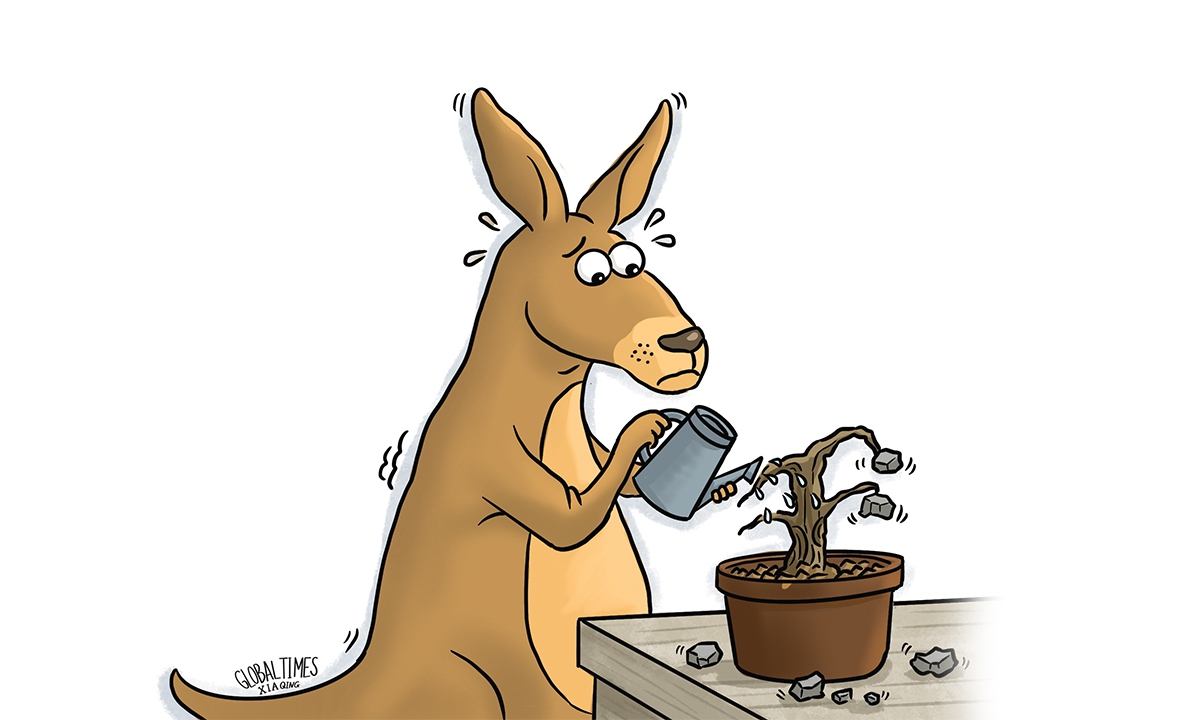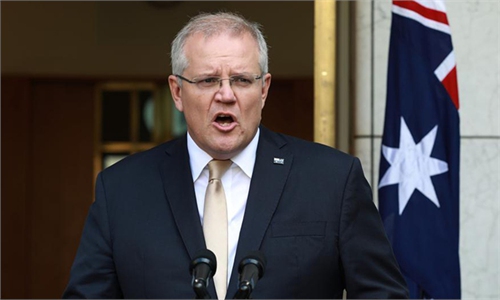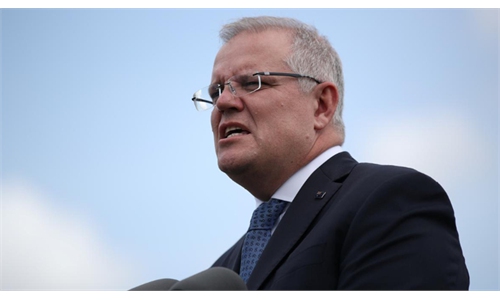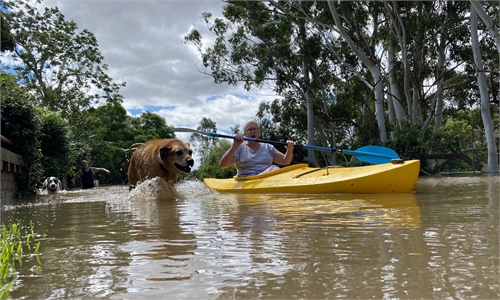
Illustration: Tang Tengfei/Global Times
Australian Prime Minister Scott Morrison on Wednesday announced AU$243 million ($175 million) worth of funding for rare earths refining projects in Australia during one of his election campaign events. Foreign media reports noted it as an effort of Australia working with the US to "diversify sources of the important minerals away from China."
While Australia had some of the world's largest reserves of rare earths, China is home to 70 to 80 percent of the industry globally, the Bloomberg said, citing Australian Industry, Energy and Emissions Reduction Minister Angus Taylor. "This initiative is designed to address (China's) dominance."
It is not breaking news as the US government, often taking a zero-sum approach, has been roping in its allies to lead a so-called decoupling campaign against China. Rare earths supply chain is a key focus in the eyes of the US and Australia, because rare earths are important materials for a wide range of manufacturing use, including semiconductors and high-tech weapons.
China's edge in the rare earths industry globally has hit a nerve with the US-led Western group, as they have attempted to contain China's tech advancement while heavily depended on China's supply of the critical materials.
The US Senate in January introduced a bill aiming to force defense contractors to stop buying rare earths from China by 2026, and called on the Pentagon to create a permanent stockpile of the strategic minerals, according to Reuters.
However, setting up a new rare-earths supply chain without China's participation is difficult to realize. Also, such a decoupling push will only hurt the global industrial chain and hamper the development of many technologies. Nobody stands to win.
Many industrial observers have pointed out that it is an impracticable plan. The US has only one rare-earths mine with no capability to process the minerals extracted; considering the US President Joe Biden's ambitious 2030 electric vehicles goal alone - 50 percent of vehicles sold in 2030 will be zero-emission electric vehicles, the US needs 10 times the amount of rare-earth metals it currently has, Forbes reported, citing USA Rare Earth CEO Pini Althaus.
It may take more than a decade for the US to set up its own rear earths supply chain from scratch, observers have claimed.
According to data by 2018, Australia recorded rare-earths reserves of 3.4 million tons, accounting for only 2.83 percent of global reserves.
By contrast, China's advantages go beyond affluent reserves. It ranks first in rare earth production, consumption and export. In terms of reserves, China's rare earth accounted for 36.7 percent of the world's total reserves, according to a paper published by the Chinese Society of Rare Earths.
In terms of related technology, China holds more patents on rare-earth technology than the US and the rest of the world combined by 2021. And more importantly, China has become the largest consumer of rare earths, consuming around 60 percent of global output.
Such a large market demand is supporting the continuous growth of China's rare-earths industry, which in turn will facilitate the advancement of the nation's high-tech innovations. Behind this virtuous circle is the country's world-class manufacturing capabilities, an area in which the US and Australia fall short. Under such circumstances, China's rare-earth industry will remain a top player for a long time to come.
The US and Australia should get rid of their zero-sum mentality and quit confronting China or decoupling from China's economy. Only through promoting cooperation in accordance with international rules and economic laws can benefit all parties.
The author is an editor with the Global Times. bizopinion@globaltimes.com.cn



